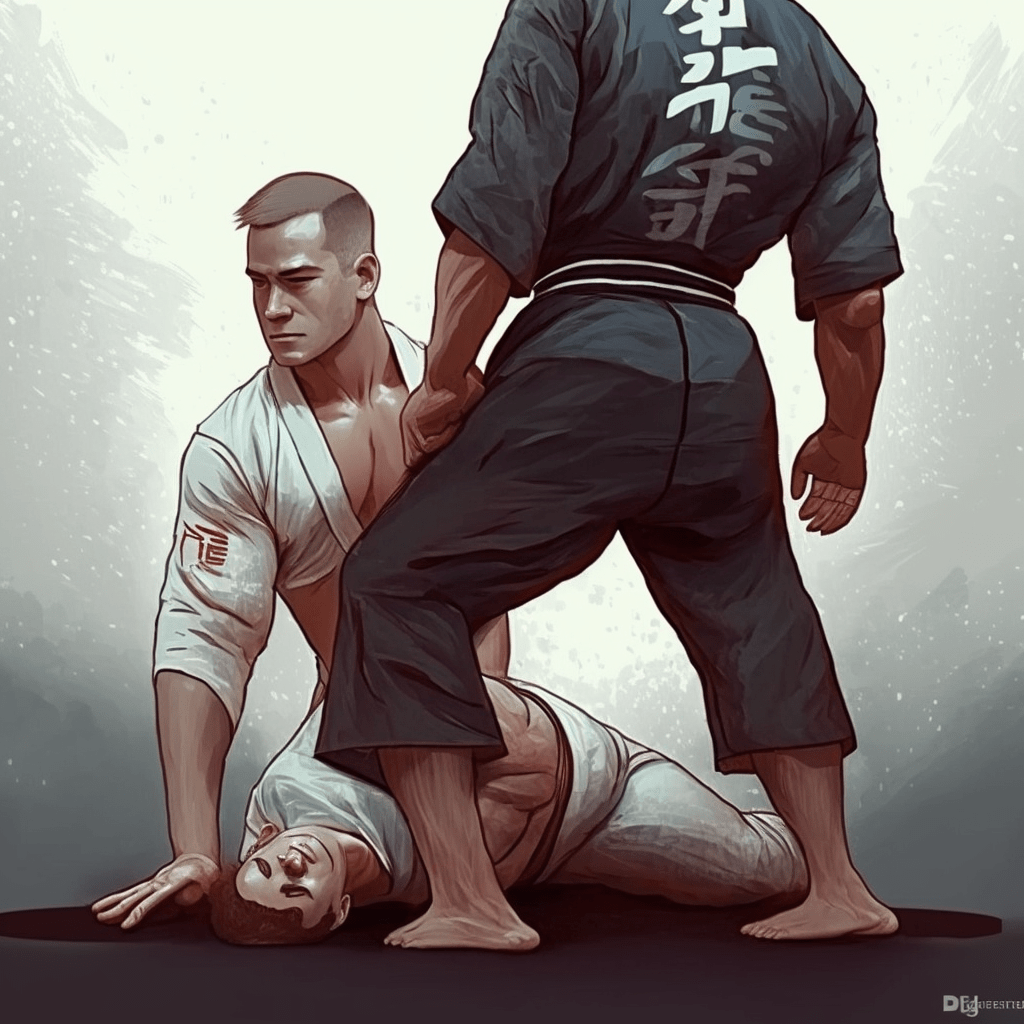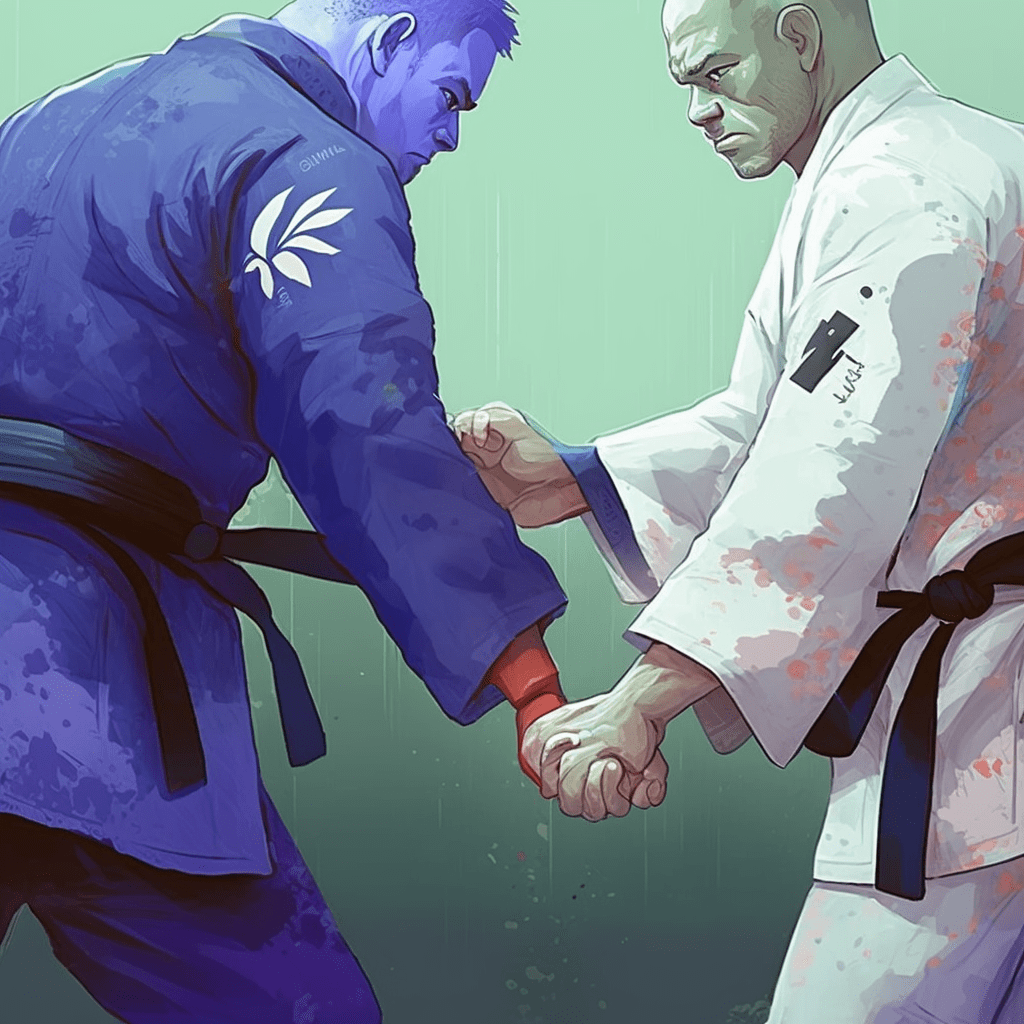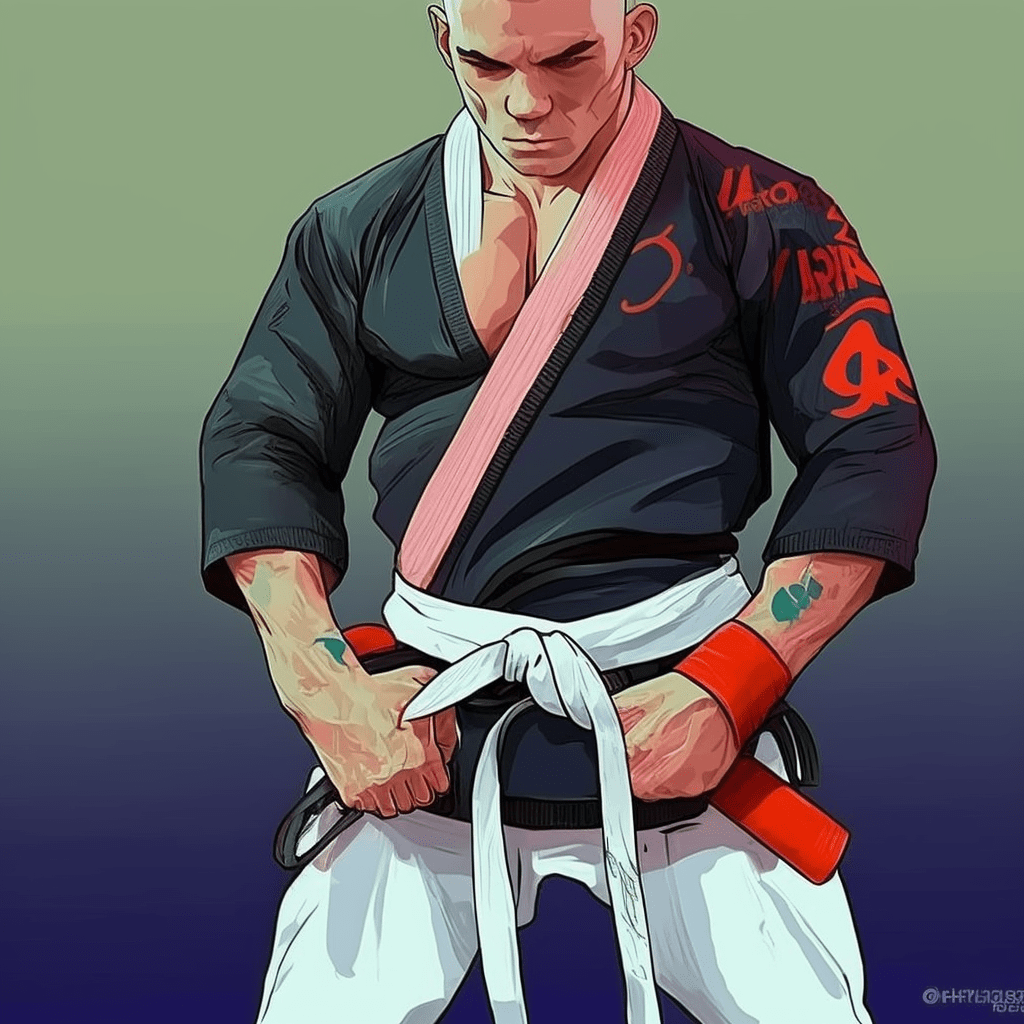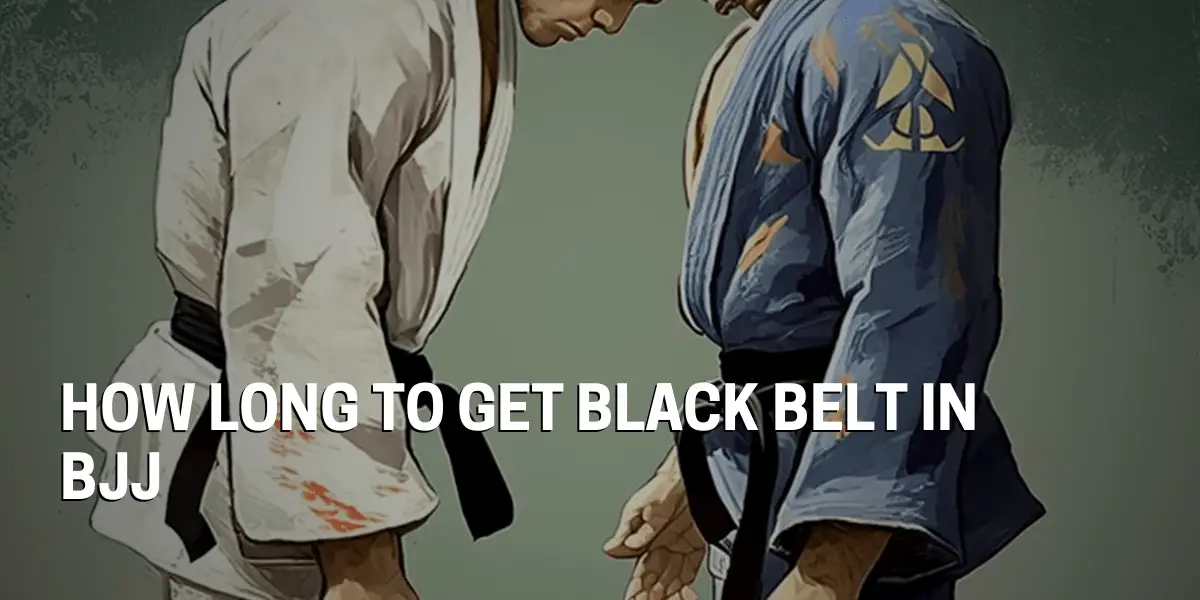How Long Does It Take To Achieve A Black Belt In BJJ?
It is a common question among martial arts enthusiasts: how long does it take to achieve a black belt in BJJ? The time commitment required to earn a black belt is significant, and in many cases it can take several years of dedicated training. The student must be willing to devote many hours to studying and practicing the techniques of BJJ. This can involve attending classes multiple times a week and studying the techniques in between classes. It also requires a strong commitment to physical exercise, since martial arts require a great deal of cardiovascular and muscular endurance.
The philosophy of the academy is also a major factor in determining the length of time it takes to receive a black belt. Some academies may encourage students to progress quickly in order to get them to black belt as soon as possible. Other academies may take a more measured approach, focusing on ensuring that students master the fundamentals before progressing.
External factors can impact the length of time it takes to receive a black belt. For example, if a student has to take extended breaks from training due to injury or illness, this can add to the amount of time it takes to achieve a black belt. Additionally, if the student is unable to attend as many classes as they would like due to other commitments, this can also add to the amount of time it takes to reach black belt.
Different philosophies on the time needed to achieve a black belt exist within the martial arts community. Some instructors argue that it should take several years to receive a black belt, while others believe that it should be possible to earn the rank in significantly less time.
Understanding the factors that can affect black belt achievement time is important. The amount of time it takes to achieve a black belt depends on the individual student, and how much time and effort they are willing to commit to their training.

Factors That Can Affect Black Belt Achievement Time
Why is it important to understand the factors that can influence black belt achievement time? Knowing what to expect and how to prepare can help practitioners stay motivated and on track to reach their goals. The level of dedication to training, the level of competition a practitioner pursues, and the ability to retain techniques learned in class are just some of the factors that play a role in the time needed to reach a black belt.
When it comes to the level of dedication to training, the more time a practitioner spends in the gym, the faster they will progress. This includes attending classes regularly and studying the techniques in between classes. The ability to stay committed to physical exercise is also important, as martial arts require a great deal of physical strength and endurance.
The level of competition a practitioner pursues is another key factor in the amount of time it takes to become a black belt. Those who choose to compete in tournaments can hone their skills faster than those who only practice in the gym.
Lastly, the ability to retain the techniques learned in class is essential for a successful black belt journey. Practitioners must be able to remember and apply the moves they have been taught in order to progress. This requires an understanding of the techniques and a good amount of repetition.
Age
Age is one of the key factors that can influence the amount of time it takes to become a black belt. Generally, it is accepted that the younger a person is when starting BJJ, the shorter the time it will take to achieve a black belt. Generally, older practitioners (those over 30) may take up to 10 years or more to achieve a black belt in BJJ. However, there have been cases of practitioners over 40 achieving their black belts in BJJ in a shorter amount of time.
In addition to age, prior martial arts experience can also affect how quickly a practitioner is able to become a black belt. Those who have trained in other martial arts, such as judo or karate, may find it easier to pick up the techniques of BJJ. This is due to the similarities between the various martial arts.
Physical condition is also an important factor when it comes to BJJ. Being in good physical shape and having a good level of strength and endurance can help practitioners progress faster. Martial arts require a great deal of physical strength and endurance.
The ability to remember and apply the techniques learned in class is key to becoming a black belt. Understanding the techniques and practicing them regularly can help practitioners progress faster. Practitioners must also be able to stay motivated.
In conclusion, there are a number of factors that can affect how long it takes to become a black belt in BJJ. Age, prior martial arts experience, physical condition, and the ability to remember and apply the techniques are all important factors that can influence the amount of time it takes to reach this impressive level of martial arts skill.
Prior Martial Arts Experience
Attaining a black belt in Brazilian Jiu-Jitsu (BJJ) is an impressive achievement that requires dedication and commitment. While age and physical condition are important factors in the journey, prior martial arts experience and understanding of techniques can also play a role.
Having a background in martial arts can be beneficial for those looking to acquire a black belt in BJJ, as this can help them progress faster.
Having a basic understanding of techniques and strategies used in other martial arts can also be advantageous.
Furthermore, having an athletic background and physical conditioning can assist in mastering the techniques of BJJ quicker.
Lastly, having the discipline to stick to a regular BJJ training schedule will be essential in attaining a black belt.
Frequency of Training
Being in good physical shape can help greatly in mastering the techniques and strategies of BJJ. A strong aerobic base is essential for success, as this will lead to better endurance and more strength.
Core strength and flexibility can also be beneficial in improving performance.
Having an understanding of proper nutrition and hydration can help optimize performance in class.
Having the discipline to adhere to a regular training schedule and pushing yourself to reach new heights will be essential in reaching black belt status.

Physical Fitness
Physical fitness is an essential requirement for reaching this level of mastery. It is important to recognize the importance of physical training for success. Cardiovascular fitness is necessary for sustaining high-level performance throughout a match, as well as the strength and power to execute various techniques at a high level. Flexibility and agility are key components to executing techniques with precision and speed.
Achieving a black belt in BJJ requires a combination of physical and mental discipline. It is important to understand the importance of physical fitness in order to reach this level of mastery. Dedication and hard work are key requirements.
The Average Time it Takes To Achieve a Black Belt
Achieving a black belt in Brazilian Jiu-Jitsu is no small feat. It takes many hours of dedication and hard work to reach this level of mastery.
Generally, it takes between three to five years of consistent training to receive a black belt, although it may take longer depending on an individual’s level of commitment.
The number of hours spent training is important in the process, as it takes an average of 8,000 hours to achieve this level of expertise.
Dedication and consistency are essential in order to reach this level of mastery, and the role of the instructor is paramount in guiding students to progress.
Examples of Black Belt Achievement Times
When it comes to achieving a black belt in Brazilian Jiu-Jitsu, the amount of time it takes varies greatly. Some individuals take as little as five years while others may take up to fifteen or more years. It all depends on the individual’s dedication and commitment to the craft. On average, most practitioners will take between eight to ten years of consistent training.
For those looking to reach a black belt in a quicker amount of time, it is possible with a dedicated training regimen and hard work. This will require putting in extra hours of practice, attending more classes, and learning from experienced instructors. With this approach, it is possible to accelerate the process and reach a black belt in as little as five years.
Conversely, for those looking to take their time and enjoy the journey, it is also possible to take up to fifteen years or longer to reach the black belt level. This approach may be better for those who want to take the time to focus on perfecting each technique and practice different scenarios. In any case, the journey to a black belt is an individual one.
Royce Gracie
The legendary Royce Gracie is widely considered one of the most influential figures in the history of Brazilian Jiu-Jitsu (BJJ). Having popularized the sport in the early 1990s after his impressive domination of the first Ultimate Fighting Championship (UFC) tournaments, Gracie is a former UFC Champion and an esteemed member of the renowned Brazilian martial arts dynasty, the Gracie family.
His impressive accomplishments in the sport of BJJ have earned him multiple black belt rankings, an achievement he has accomplished in just four years. With such a short amount of time, Gracie serves as an inspiration for martial artists all over the world.
The journey to a black belt is an individual one and should be respected as such. Gracie’s remarkable story highlights the importance of dedication, hard work, and commitment to the craft.

Helio Gracie
Why is Helio Gracie so widely recognized as the father of Brazilian Jiu-Jitsu (BJJ)? His pioneering work in the early 20th century transformed BJJ into the martial art it is today, and his teachings still remain prominent in many BJJ schools around the world.
In 1936, he was awarded a black belt in Judo and in 1952, he received his black belt in BJJ. Helio Gracie’s lineage and techniques have been passed down through the generations, and his legacy lives on in the martial arts community.
His name is synonymous with the highest quality of teaching and dedication to the art of BJJ. In his lifetime, Helio Gracie dedicated himself to the martial art and achieved his goal of becoming a black belt in Judo and BJJ, inspiring martial artists all around the world.
Kyra Gracie
In Kyra Gracie, we have a shining example of the power of perseverance and dedication. She is a multiple-time world champion in BJJ and has been competing since she was 15 years old. Her journey to the black belt rank took approximately 8 years, and it was no easy feat.
Kyra has been training since she was a young child and is the granddaughter of Carlos Gracie, one of the founders of the BJJ style. Her commitment to the martial art is an inspiration to many, and she is a testament to the legacy of her grandfather, Helio Gracie.
Her accomplishments speak for themselves, and she is a well-deserved black belt in BJJ. The benefits of Kyra’s training can be seen in her improved understanding of the fundamentals of BJJ and her strong sense of self-discipline.
Benefits of Training for a Black Belt
Training for a black belt in Brazilian Jiu-Jitsu (BJJ) can be a daunting task. It requires dedication, discipline, and consistent effort. However, those who have achieved a black belt in BJJ have the opportunity to reap many physical and mental benefits, as well as gain self-defense skills.
The path to achieving a black belt in BJJ includes mastering a variety of techniques, drills, and training methods. It also requires time and dedication, as it typically takes about 8 years to reach the black belt rank. It is a long-term commitment that requires a great deal of focus and mental discipline.
Those who make the effort to reach the black belt rank will be rewarded with improved physical fitness, greater mental clarity, and the skills necessary to defend oneself in a variety of situations.
The journey to a black belt in BJJ may seem intimidating, but with the right attitude and commitment, the rewards can be significant. Kyra Gracie is a great example of this – she has been competing in BJJ since she was 15 years old and has become a multiple-time world champion. Her commitment and dedication to the martial art is an inspiration to many.
Challenges of Achieving a Black Belt
When it comes to achieving a black belt in Brazilian Jiu-Jitsu (BJJ), there are many challenges to be overcome. It requires a combination of dedication, physical strength, and mental focus, as well as a financial investment in training, equipment, and competitions. It is a long-term commitment that can take up to eight years to reach the black belt rank.
However, for those willing to put in the effort, the rewards can be significant. Physical fitness, mental clarity, and self-defense skills are just a few of the benefits that come with achieving a black belt in BJJ. Kyra Gracie is a perfect example of this – she has become a multiple-time world champion and an inspiration to many by dedicating herself to BJJ since she was 15 years old.
The challenge of achieving a black belt in BJJ can be daunting. But those who do put in the effort can reap the many rewards. It requires consistent practice, focus, and discipline.

Resources for Reaching a Black Belt
Achieving a black belt in Brazilian Jiu-Jitsu (BJJ) is no easy feat. It requires hard work, dedication, and a commitment to the art form. It takes an average of eight years to reach the rank of a black belt, but the rewards are worth it. Achieving a black belt in BJJ can give you physical fitness, mental clarity, and self-defense skills that can last a lifetime.
Finding the right resources to help you achieve your black belt is essential. From finding the right instructor, to dedicating yourself to consistent training sessions and staying up to date on the latest techniques and strategies, there are a variety of resources available to help.
For those who are just starting out, finding a good coach or instructor is key. They can provide guidance and feedback on your training, and help you stay on track with your goals.
Consistent, focused and dedicated training sessions are essential. This means dedicating yourself to regularly scheduled classes, and making a commitment to learning and perfecting the techniques and strategies of BJJ.
It is also important to stay up to date on the latest techniques and strategies in BJJ. This can be done by reading, watching videos, and attending seminars. Utilizing these resources can give you the edge you need to reach your black belt goals.
When it comes to achieving a black belt in BJJ, resources are available to help get you there. Finding the right coach and instructor, dedicating yourself to consistent and focused training, and staying up to date with the latest techniques and strategies are all important steps in the process.
FAQs
Q. What is the minimum age for achieving a black belt in BJJ?
The minimum age to achieve a black belt in Brazilian Jiu-Jitsu (BJJ) is typically 16 years old, but there are some exceptions. For example, some individuals may be able to attain the coveted rank before the age of 16.
It’s important to note, however, that the minimum age requirement may vary between different BJJ schools or organizations.
When it comes to martial arts experience, it is beneficial to have some kind of martial arts background prior to attempting to attain a black belt in BJJ.
This is because the techniques and strategies involved in BJJ are more complex than other martial arts, and having prior experience can give a practitioner an advantage.
Q. What types of martial arts experience are beneficial for achieving a black belt?
Having a background in other martial arts, such as judo, karate, and tae kwon do, can help to develop the skills and techniques needed for BJJ. Additionally, having an understanding of the concepts of balance, timing, and body mechanics can be beneficial for learning BJJ.
Furthermore, being familiar with the principles of self-defense and grappling can help to speed up the process of learning BJJ.
A good martial artist should take the time to hone their skills and practice regularly.
Q. How often should I train to achieve a black belt in BJJ?
In order to achieve a black belt in Brazilian Jiu-Jitsu (BJJ), consistency is key. It is an individual’s dedication and skill level that ultimately determines how long it takes to reach this goal. Most practitioners suggest training at least three to four times a week to reach the black belt level. This means that the commitment to practice and learn the techniques of BJJ must be strong and consistent.
However, it is important to remember that the amount of time necessary to reach the black belt level varies from person to person. With the right dedication and hard work, it is possible to reach this level in a shorter timeframe.
Physical fitness is also a necessary factor for success. To ensure success on the mat, practitioners must have the physical and mental strength to sustain themselves for the duration of each practice session.
Q. Is physical fitness necessary to achieve a black belt in BJJ?
The answer is yes – physical fitness is essential when it comes to training in Brazilian Jiu-Jitsu. Good physical fitness allows practitioners to progress through the belts and learn the techniques of the martial art efficiently.
Dedication, perseverance and skill are also critical components to success in BJJ.
Physical fitness is an important factor, but it is not the only one. Training and practice are necessary to improve technique.
In order to progress and become a master of the art, a practitioner must also be dedicated to learning and mastering the skills. It takes time, patience, and commitment to become proficient in the martial art.
Q. Are there any benefits to training for a black belt in BJJ?
Learning Brazilian Jiu-Jitsu can be a rewarding experience for all types of people, regardless of their physical fitness level. Training for a black belt in BJJ provides a variety of benefits, both physical and mental. Physically, training for a black belt in BJJ can improve strength, flexibility, and coordination. On the mental side, it can build discipline, respect, and mental focus. It also requires a long-term commitment to achieve, which can develop perseverance and dedication.
But how long does it take to get a black belt in BJJ? The answer depends on a variety of factors, including the person’s physical fitness level, commitment to training, and dedication to mastering the techniques. Generally, it can take anywhere from four to six years to get a black belt in BJJ, although the amount of time required may vary depending on the individual.

